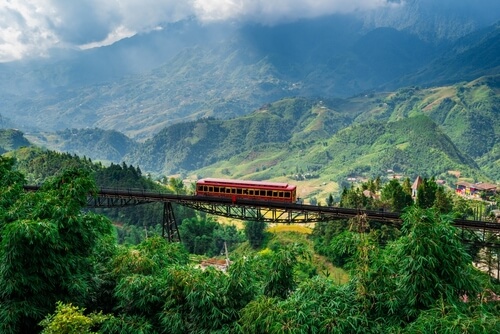On Wednesday, a conference in Hậu Giang discussed possible efforts to sustain Vietnam’s rice farming, including raising farmers’ wages and shifting to eco-friendly manufacturing.
Participants at the “Developing Vietnam’s Responsible Rice Value Chain” assembly acknowledged the nation’s significant achievements in the grain’s production in recent years, which have ensured food security and global export dominance for the country.
Deputy Minister Hoàng Trung stated that Vietnam’s annual rice output stood at 26-28 million tons, with 20 million intended for local consumption.
In the first 11 months of this year, Trung reported a record $4.4 billion from exporting 7.8 million tonnes of rice, with figures expected to continue increasing.
However, attendees said the sector is struck with many obstacles, such as the current global market volatility, consumer preference shifts, and the effects of climate change.
To address these issues, the sector needs to improve its rice quality, cut costs, adjust to climate change, curb greenhouse gas emissions, grow markets, and create a sustainable brand for the world market.
Cao Đức Phát, Chair, Board of Trustees at the International Rice Research Institute (IRRI), identified three critical challenges for the global rice industry.
Those include boosting output for an expanding population, raising rice farmers’ wages, and adapting to climate change while minimizing greenhouse gas emissions.
Vietnam is also seeing to the last two, according to Phát.
On December 12, the Ministry of Agriculture started a project to cultivate high-quality, low-emission rice on one million hectares in Mekong Delta hectares by 2030.
Vietnamese farmers have an average of 0.6 hectares of land per household. Phát said they require training in new manufacturing methods that align with market needs and receive assistance securing bank loans.
Vietnam’s Rice Manufacturing Faces Suite of Challenges
Deputy Director of the Crop Production Department, Lê Thanh Tùng, noted that rice production in the Mekong Delta may have to address water availability issues as floods have been infrequent and saltwater intrusion is rising.
Such challenges call for more infrastructure investments and broad technical solutions to cut emissions and enable carbon credit trading, according to Tùng.
Associate Professor Dr. Nguyễn Phú Son specified ten key challenges in creating a rice value chain.
Those include inadequate sharing of risks and benefits between involved stakeholders, loose farmer-business relationships, small output scale, and insufficiency of an extensive database.
He stated that not having enough databases impacts market forecasting and proper sector management that optimizes the space between supply and demand.
Son urged creating concentrated growing areas for quality rice towards sustainability and green growth to tackle the obstacles and develop the rice value chain.
The move is expected to result in solid stakeholder linkage models, reduced costs for better competency, and research for developing Vietnam’s common rice types and brands.











